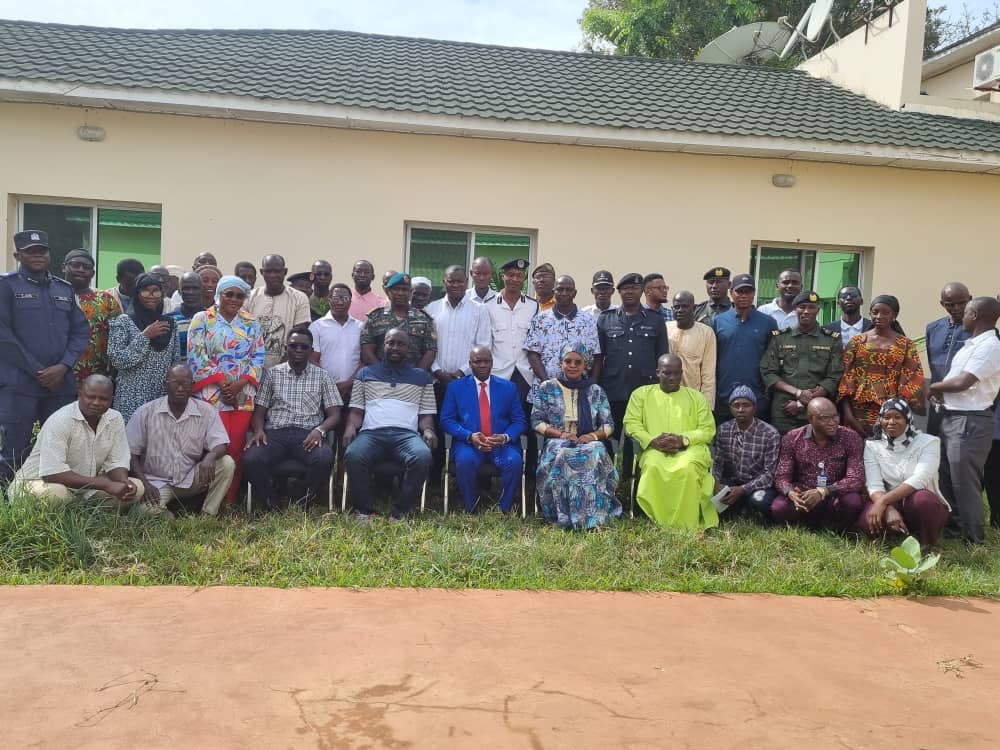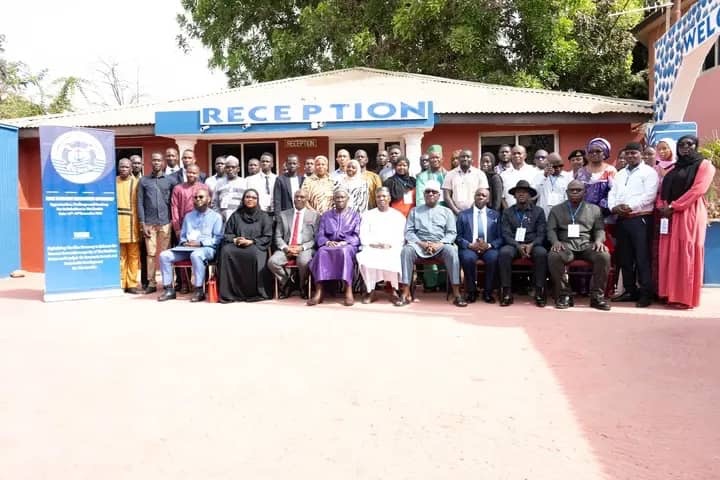By Yunus S Saliu
As Strengthening Access to Quality Comprehensive Health Education for Adolescents in The Gambia project intensifies, the implementing research team on Monday, 8th November, sensitised the special need and inclusive education schools on Comprehensive Health Education in three different inclusive schools.
The special need and inclusive education schools sensitized included St John’s School for the Deaf, GOVI (Gambia Organisation of the Visually Impaired) Resource Centre and Methodist Special School in Kanifing Municipality.
Students of special needs and inclusive education schools comprise adolescent boys and girls that are vulnerable and prone to sexual harassment among others as some people taking advantages of their conditions.
Addressing the students, their teachers and guidance, Phebian Ina Grant-Sagnia, principal investigator of the project for Strengthening Access to Quality Comprehensive Health Education for in-and-out of School Adolescents in The Gambia who is also Principal Health Researcher Ministry of Health noted that these kind of schools are made up of adolescents male and female and often times they are victims of gender based violence which include rape, incest among other sexual harassments.
In every school activity, she said, it is very important to include there schools and the students “because they are part of the society.”
In a very simple term, she said comprehensive sexuality education is right based approaches to transfer knowledge, inform, educate and communicate to adolescents about sexual and reproductive health issues to enable them know how their bodies grow and the changes that occur during puberty.
Ms Musukaba Camara, Head Teacher of GOVI noted among other topics that gender basedviolence is one of the challenges for GOVI’s students because they are visually impaired which makes them open to violence in the society being in school, home or at the community level.
She said in the past they did have peer-health education group visiting the school, which is no more available now, and “the only place where this students can have this information is from the erstwhile Family Life Education (PoP/FLE) subject.
She said issues attached to reproductive health are increasing because parents are very shy to discuss violence against their children as regarding rape, molest or other forms of sexual harassments and even in term of their girls’ children menstrual circles.
Ms Camara however expressed delights that the CHE team selected GOVI among the special need and inclusive education schools for the sensitization program, which has given the students and teachers opportunity to learn and asked intrigue questions.
She however made request that the MOBSE and CHE team to have more open classes with the students at least twice in a term “because it is not only girls that are violate but the boys, too. Of recent in one area within the municipality we heard of a boy been violated – raped by a man.”
However, Ms Lucy Safoe, Head Teacher of Methodist Special School described the sensitisation as very timely saying some of their students have been victims that even those that have babies among them are contemplating of withdrawing or continuing as some people took advantages of their conditions to violate them.
Therefore, “it is timely those students that have babies have come back to school and their mates were able to gained from the sensitization and know how to safeguard themselves,” she expressed.
More so, the sensitization has given us opportunity to have forum that will include the students and parents as regarding to some of the topics covered under Comprehensive Health Education.
Comprehensive health education (CHE) under the project – Strengthening Access to Quality Comprehensive Health Education in The Gambia is an implementation research project done by the Ministry of Basic and Secondary Education (MoBSE) with funding from International Development Research Center (IDRC). And it is meant to enlighten and educate in and out-of-school students on adolescent sexual and reproductive health (ASRH).





